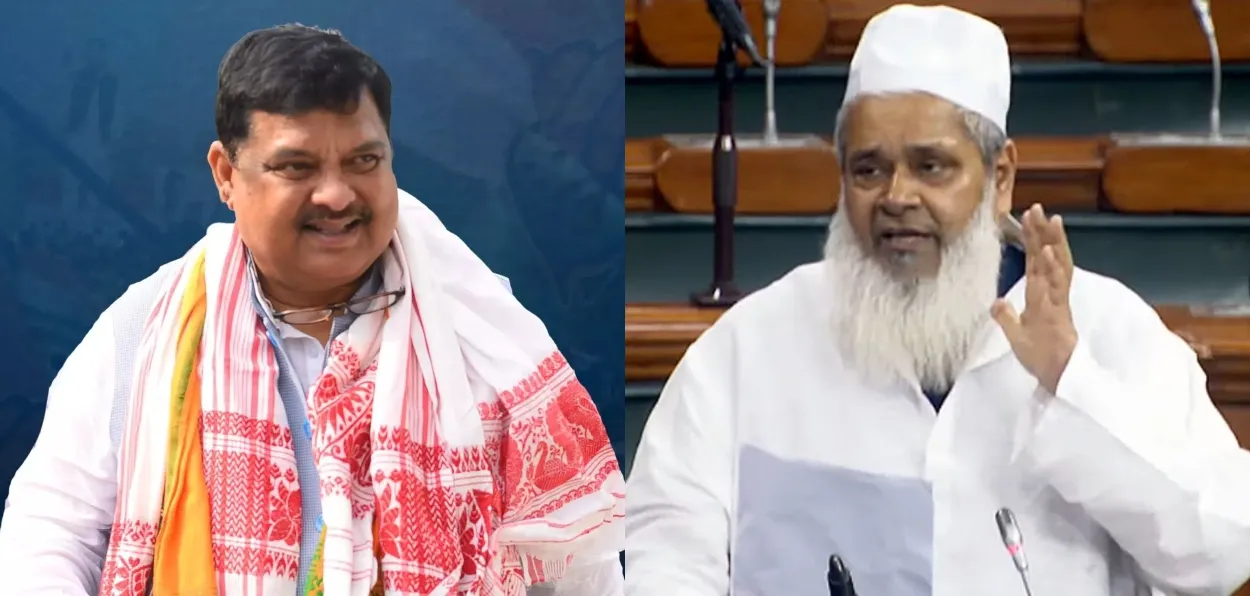Assam’s Dhubri Lok Sabha constituency has made a mark on India’s political map with Congress candidate Rockybul Hussain emerging victorious by a record margin of 1,012,476 votes, the largest margin recorded in India, according to an Election Commission of India.
This victory is particularly significant as Hussain, a Muslim, defeated another prominent minority leader, perfume baron Badruddin Ajmal of the All India United Democratic Front (AIUDF). The contest between Hussain and Ajmal highlights the intense battle for political dominance among minority leaders amid the rising influence of the BJP in Assam since 2014.
Ajmal, who had won from the Dhubri seat for two successive terms, founded the AIUDF soon after the Illegal Migrants Determination by Tribunals (IMDT) Act was abolished in Assam.
The IMDT Act, which was perceived as offering protection to illegal migrants, was nullified by the Supreme Court following a prolonged legal battle with the influential All Assam Students Union.
AIUDF’s rise to prominence was built on the protection of Muslim minorities, quickly becoming a major political force in Assam. In the 2011 Legislative Assembly elections, AIUDF won 18 of 126 seats, and in 2016, it secured 13 seats.
However, the recent Lok Sabha elections witnessed a dramatic shift. The Dhubri constituency, which Ajmal had dominated since 2014, saw a significant swing with over 54 percent of votes cast in favour of Congress, while AIUDF’s vote share declined by more than 23 percent.
This shift suggests a consolidation of Muslim votes towards Congress, a trend also observed in other Muslim minority-dominated seats in Assam.
After delimitation, Dhubri comprises eight assembly segments. Nagaon, another minority-dominated region, also consists of eight assembly constituencies, while Karimganj in the Barak Valley includes six assembly segments. Together, these constituencies account for 22 assembly seats. The Lok Sabha election results, indicating Muslim voters’ consolidation behind Congress, have prompted the BJP to reassess its strategies.
Despite these shifts, the BJP remains a formidable force. According to data from the Election Commission of India (ECI), the BJP and its allies led in 93 assembly constituencies during the recent Lok Sabha elections. Specifically, the BJP led in 76 seats, the AGP in 10, and the UPPL in seven. The Congress-led alliance led in 31 constituencies, and the Bodoland People’s Front (BPF) led in two.
The BJP’s stronghold in Assam is evident, but there are signs of potential change. The recent win by Congress leader Gaurav Gogoi in the Jorhat constituency, a significant seat in Upper Assam, indicates that the Congress could make inroads into the BJP’s base. This region is critical as it holds a substantial indigenous vote bank, which could prove pivotal in future elections.
Muslims constitute about 40 percent of Assam’s population according to the 2011 census. The opposition parties have alleged that the delimitation was carried out to reduce the number of Muslim-majority seats, thereby benefiting the indigenous communities politically. However, the rout of AIUDF in the Lok Sabha elections suggests that the Muslim electorate is increasingly unwilling to fragment their votes for a party that struggles to assert itself on both the state and national stages.
AIUDF’s stance on controversial issues such as the Citizenship Amendment Act (CAA) and the National Register of Citizens (NRC) has also led to disillusionment among Muslim voters. Many perceive the party as being more focused on political gains rather than genuinely addressing community concerns.
Looking ahead to the next two years, the political dynamics in Assam could undergo significant changes. If Congress continues to build on its recent successes and manages to gain the critical indigenous vote mass in Upper Assam, it could pose a serious challenge to the ruling BJP. The BJP, while currently leading in terms of assembly seats, cannot afford to be complacent. The evolving voter base, particularly the consolidation of Muslim votes behind Congress, signals a potential shift that could redefine Assam’s political landscape.
Rockybul Hussain’s historic win in Dhubri is more than just a personal triumph; it represents a broader political realignment in Assam. The consolidation of minority votes, coupled with strategic gains in indigenous constituencies, could herald a new era in Assam’s politics, challenging the BJP’s dominance and reshaping the state’s future.
Source: awazthevoice

